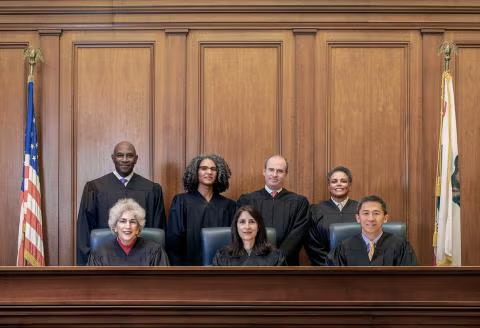CA Supreme Court Reverses Prior Decision in Sonic Calabasas v. Moreno
On October 17, 2013, the CA Supreme Court overturned its February 2011 decision in Sonic Calabasas v. Moreno (“Sonic I”). Unfortunately, however, the dense, scholarly, 73-page opinion — known as Sonic Calabasas v. Moreno II (“Sonic II”) — gives little clarity to California employers trying to craft defensible, enforceable arbitration agreements.
Background
In the original Sonic I case, the Court held that an employee who signs an otherwise enforceable arbitration agreement did not give up his/her right to file an administrative action with the California Labor Commissioner. As a result, any arbitration agreement that attempted to prohibit an employee from pursuing administrative claims with the California Labor Commissioner’s office was unenforceable as a matter of law. You can read my blog about the Sonic I decision here.
But the Sonic I decision quickly became a dubious precedent. In April 2011, the U.S. Supreme Court issued its decision in AT&T Mobility v. Concepcion. That case established new rules for determining when and how arbitration agreements could be enforced, with the U.S. Supreme Court squarely coming down on the side of enforceability. This was, of course, different from the California Supreme Court’s decision in Sonic I, which came down squarely on the side of unenforceability. AT&T Mobility thus signaled clearly that Sonic I was on shaky legal ground in California. You can read my blog post about the AT&T Mobility case here.
And indeed it was. In only a few months later, in October 2011, the U.S. Supreme Court reversed and remanded the Sonic I decision for further consideration in light of AT&T Mobility. The California Supreme Court was thus left to decide whether the AT&T Mobility opinion, when applied to the facts of Sonic I, compelled a different result. You can read my blog post about the reversal here.
The Sonic II Decision
In light of the U.S. Supreme Court’s guidance in AT&T Mobility, the California Supreme Court determined that its prior holding in Sonic I was wrong. Specifically, the California Supreme Court ruled in Sonic II that the administrative process before the Labor Commissioner would substantially delay arbitration; therefore, Sonic I’s blanket rule invalidating waivers of Labor Commissioner claims in arbitration agreements was invalid. Instead, the Court adopted a more nuanced rule in Sonic II — namely, that so long as an as the “arbitral scheme at issue [in a specific arbitration agreement] provides employees with an accessible and affordable process for resolving wage disputes,” it is legally permissible for that arbitration agreement to include a waiver of Labor Commissioner claims.
Unfortunately, the Sonic II Court did not define when an “arbitral scheme” becomes “accessible” or “affordable.” The Court expressly acknowledged that there was already considerable uncertainty in the lower courts on these issues, and it implicitly admitted that it’s new decision would not give much, if any, clarity. Instead, the Court instructed lower courts to look to the totality of the arbitration agreement’s terms and circumstances to determine “whether the overall bargain was unreasonably one-sided.” The Court further instructed that, in this analysis, no preference for non-arbitration over arbitration may be given.
You can read the Court’s full Sonic II opinion here.
Impact on California Employers?
All we know as a result of Sonic II is that, to be enforceable, an employment arbitration agreement that includes a waiver of Labor Commissioner claims must offer an “accessible” and “affordable” process for resolving wage disputes AND it must be the result of an “overall bargain that was unreasonably one-sided.” But we don’t know what makes a particular arbitral process “accessible” or “affordable,” and we don’t know when an arbitration agreement results from a deal between employer and employee that was “unreasonably one-sided.” We won’t know what these terms mean until future parties file lawsuits and Courts weigh in and provide definitions to these terms. All we know for sure is that the California Supreme Court is still willing to find ways to invalidate employment arbitration agreements in California.
I expect we will get some clarity when the California Supreme Court announces its decision in Iskanian vs. CLS Transportation Los Angeles LLC (dealing with the impact of AT&T Mobility on class action waivers and representative action waivers under California’s Private Attorney General Act). Stay tuned!
Insights
OUR BLOG


